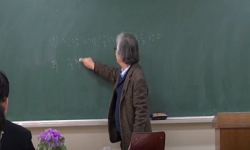This paper considers Machiavelli's moral revolution in good and bad conducted in his two major political books, The Prince and the Discourses on Livy, and tries to extract some political significance of that revolution. I argue that Machiavelli mainly...
http://chineseinput.net/에서 pinyin(병음)방식으로 중국어를 변환할 수 있습니다.
변환된 중국어를 복사하여 사용하시면 됩니다.
- 中文 을 입력하시려면 zhongwen을 입력하시고 space를누르시면됩니다.
- 北京 을 입력하시려면 beijing을 입력하시고 space를 누르시면 됩니다.
https://www.riss.kr/link?id=A103591941
- 저자
- 발행기관
- 학술지명
- 권호사항
-
발행연도
2006
-
작성언어
Korean
-
주제어
『군주론』 ; 『리비우스논고』 ; 덕성(virtue) ; 마키아벨리 ; 상대주의 ; 상상적 선 ; 선-악 ; 신군주 ; 창업과 개혁 ; and imaginary moral good ; Discourses ; force ; Machiavelli ; moral good-bad ; new prince ; political founding and reform ; The Prince ; virtue
-
KDC
340
-
등재정보
KCI등재
-
자료형태
학술저널
- 발행기관 URL
-
수록면
1-24(24쪽)
- 제공처
-
0
상세조회 -
0
다운로드
부가정보
다국어 초록 (Multilingual Abstract)
This paper considers Machiavelli's moral revolution in good and bad conducted in his two major political books, The Prince and the Discourses on Livy, and tries to extract some political significance of that revolution. I argue that Machiavelli mainly considers the 'utility' of moral bad in The Prince, but that together with it, in the Discourses, he considers comprehensively both the utility and problem of moral good and bad. Just as Leo Strauss observes that both works convey 'essentially the same teaching from two different perspectives,' so both books reflect Machiavelli's complementary perspective in moral good and bad. Machiavelli's argument running through these two books concerns the 'new prince' or 'reformer.' While traditional morality sought 'moral perfection' through virtue, Machiavelli argues that from the viewpoint of 'utility' or 'results,' moral good and bad, in fact, come much closer to each other than expected, which contradicts the observations made by the traditional thinkers of morality. I show this in the context of both books. After this, I proceed to guess some political significance, based on my analysis of Machiavelli's discovery of new morality and its effectual use. I draw three political possibilities from this analysis of Machiavelli's moral revolution. (1) Machiavelli's revolution resulted in the relativization of the traditional virtue; and the question of the use of 'force' is positively implied in his new discovery of morality and its use. (2) Machiavelli's moral revolution was achieved with a view to the conception of 'political founding,' and this conception of founding is linked to future 'reform' via the concept of 'uno solo'(one man alone). Lastly, (3) Current politics of left-right ideology can be better explained by Machiavelli's use of the term 'imaginary' morality, i.e., untested moral good and bad. I argue that left-right type of ideological politics is merely an expression of what Machiavelli says as 'making profession of good in all regards.'
동일학술지(권/호) 다른 논문
-
- 21세기정치학회
- 김영일(Kim Young-il)
- 2006
- KCI등재
-
- 21세기정치학회
- 박주원(Park Joo Won)
- 2006
- KCI등재
-
국제결혼 이주여성을 계기로 살펴보는 다문화주의(multiculturalism)와 한국의 다문화 현상
- 21세기정치학회
- 문경희(Kyoung-Hee Moon)
- 2006
- KCI등재
-
- 21세기정치학회
- 박범종(Park Beom jong)
- 2006
- KCI등재





 DBpia
DBpia






